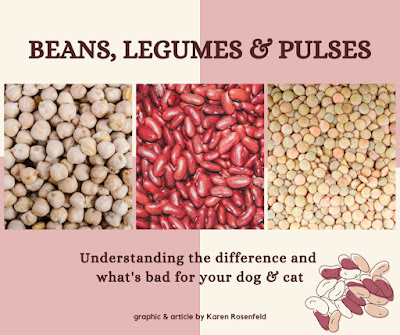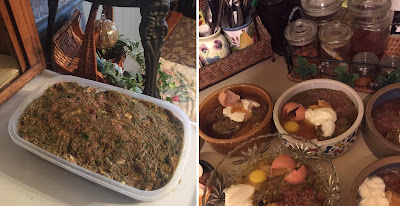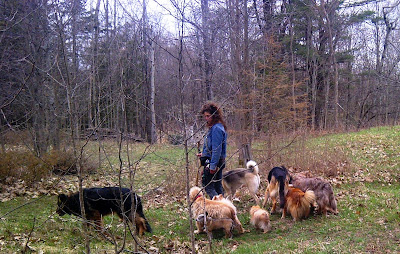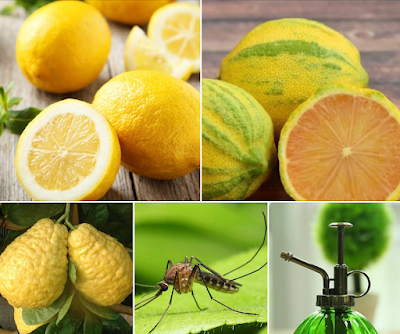Beans, Legumes and Pulses, Understanding the Difference and What’s Bad for Your Dog and Cat
.1 Beans, Legumes and Pulses
- Understanding the difference: beans vs legumes vs pulses
.2 What's Bad for your Dog and Cat
- The Don’t Use List
.3 Why Most Beans, Pulses and Legumes are bad for your dog and cat
- Aflatoxins
- Lectins
- Phytates
- Glyphosate
.4 Appropriate Legumes for Dogs and Cats
- Green Beans, whats good, whats not, cautions, benefits and how much (for dogs)
- Beneficial herbal
and medicinal legumes (for dogs and cats)
.5 Appropriate leafy greens, vegetables and fruit for your dog’s health
.1 Understanding the Difference: Beans vs, Legumes, vs Pulses
Legumes are plants in the Fabaceae or Leguminosae plant family. The family includes trees, shrubs and flowering plants.
Plants in the legume family are grown or wild-harvested for many reasons, including:
- As a source of food
- For medicinal purposes
- As an ornamental flower, shrub, tree or vine
- Not all legumes are pulses or beans.
Pulses are the dried fruit (seeds) of legume plants.
Beans are a type of pulse (dried seed) of a legume plant.
.2 What’s Bad for Your Dog and Cat
The Don’t Use List
These beans, legumes and pulses are bad for your dog and cat:
Legumes
- Edamame (young soy beans)
- Lentils (Dal), black, blue-green, brown, green, red
- Peanuts
(peanut and peanut butter), learn about appropriate alternatives here.
- Peas, fresh (green peas, snap peas, snow peas)
- Soybeans
Beans (pulses)
- Adzuki bean
- Anasazi bean
- Black-eyed pea
- Black turtle bean (Black bean, Preto)
- Broad beans (Fava bean)
- Cannellini beans
- Chickpea (Garbanzo)
- Cranberry beans (Ramano, Speckled sugar)
- Edamame (young soy beans)
- Flageolet beans
- Great Northern bean
- Kidney bean (white, light red, dark red)
- Lima bean
- Mung bean
- Mungo bean (Urad bean)
- Navy bean (Haricot beans, White pea bean)
- Otebo bean
- Peanuts
- Peas (English peas, snow peas, sugar snap peas, etc.)
- Pinto beans (Carioca bean)
- Red beans (Mexican red bean, small red bean)
- Scarlet runner bean
- Soybean (Soya bean)
- Split peas
- Yellow bean
The legumes and beans listed above are bad for your dog and cat’s health, regardless if:
- Organically grown
- Sustainably grown
- Wild harvested
- Cooked
- Dry
- Fresh
- Sprouted
Pet food, treat and supplement companies often market beans and pulses as ‘better’ than grains for dogs and cats. The truth is grains, beans and pulses are equally harmful to a dog and cat’s health.
Let’s talk about why the beans, and legumes on the “Don’t Use” list are bad for your dog and cat.
.3 Why Most Beans, Pulses and Legumes are Bad for Your
Dog and Cat
The beans, pulses and legumes on the “Don’t Use” list contribute to and cause inflammatory issues and chronic disease in dogs and cats.
How do these beans pulses and legumes harm your dog and cat’s health? Let’s take a look.
Aflatoxins
Aflatoxins are naturally occurring toxic fungi. Bean and pulse crops are highly susceptible to aflatoxin contamination. Other crops including grains (barley, bulgur, oatmeal, rice, etc.) are vulnerable to aflatoxin contamination. Aflatoxin contamination on beans and pulses can occur:
- On the plant when it’s growing
- During harvesting
- During processing of the harvested bean or pulse
- After you buy the product
Aflatoxins are toxic to dogs, cats, humans and other animals. Aflatoxins are also toxic to humans and classified as a carcinogen by the WHO (World Health Organization).
Aflatoxins are NOT destroyed by cooking or other heat treatments.
Consuming food contaminated with aflatoxins can cause acute severe aflatoxicosis.
Immediate side effects of acute aflatoxicosis include:
- Hemorrhage
- Kidney damage
- Liver damage
- Death when not treated in time
Long term side effects of aflatoxicosis include:
- Liver cancer
- Kidney disease
I’ve treated client dogs for aflatoxicosis. It’s a complicated condition to treat. Aflatoxicosis can have long-lasting consequences to health.
Lectins
Lectins are present in a wide range of foods including:
- Beans
- Fish and other harvested animal proteins
- Fruit
- Grains
- Legumes
- Pulses
- Vegetables
But not all lectins cause harm.
Lectins in the beans and legumes (on the “Don’t Use” list) are harmful to dogs and cats as they cause and contribute to:
- Autoimmune disorders including arthritis, leaky gut and food allergies
- Disruption of the gut and intestines
- Immune system issues
- Inflammation in the body
- Interfere with the absorption of nutrients
The lectins present in beans and legumes (on the Don’t Use list) aren’t degraded or destroyed by heat. Baking, cooking, boiling and otherwise heating these beans and legumes doesn’t reduce the harmful effects on your companion animal's health.
Phytic Acid
Phytic acid is a naturally occurring substance in plants. The amount of phytic acid varies per plant and parts of plants.
The items on the Don’t Use list are high in phytic acid content.
Phytic acid interferes with the absorption of:
- Calcium
- Iron
- Zinc
Consuming foods with a high phytate content, can cause mineral deficiencies. The extent of the adverse effect depends on the individual dog’s personal situation. Inherited predisposition plus acquired circumstances. Sensitivities, vulnerabilities and specifics of the overall dietary protocol.
Glyphosate
Glyphosate (also known as RoundUp) is the most common herbicide used in the world. In 2015 the WHO’s IARC (International Agency for Research on Cancer) declared glyphosate a probable human carcinogen. You can read IARC’s findings here.
Since 2015 many high profile law suits have been filed against the manufacturer (Bayer – Monsanto) of glyphosate. Monsanto recently lost a lawsuit covering an estimated 95,000 cases. As a result, Monsanto-Bayer must pay $10 billion to settle the suits. There are more cases waiting to be hear in-court.
Before planting a legume crop, glyphosate may be used to kill weeds in the field. Before harvesting the crop, glyphosate may also be applied to plants to speed-up dessication of the crop. This is a common practice used in harvesting bean crops. Glyphoste is applied during the growing and harvesting of GMO and conventional soy bean crops.
All beans and legumes on the Don’t Use list pose a real health threat to your dog and cat.
.5 Appropriate Legumes for Dogs and Cats
Not all
plants from the legume family are bad for dogs and cats. Some legume plants can help support your dog and cat's health. This is discussed in the sections below.
Fresh Green Beans
Whats Good, Whats Not, How Much and Benefits
Fresh green
beans have beneficial health properties for dogs. Green beans are not appropriate for cats.
Appropriate Green Beans:
- Common green beans
- French green beans
Cautions:
Non-organic green bean crops are heavily treated with synthetic chemical fertilizers, fungicides, herbicides and pesticides. Choose homegrown organic greens beans or commercially grown organic green beans.
The amount of green beans used should not exceed more than 1% of your dog’s diet.
To ensure proper absorption of nutrients, green beans should be pureed, or lightly steamed.
Do NOT use canned green beans.
Organic Green Beans Are Rich In:
- Vitamin A
- Vitamin B6
- Vitamin C
- Vitamin K
- Folic acid
- Minerals – calcium, copper, iron, manganese, potassium, silicon
- Antioxidants – beta carotene, catechin, epicatechin, kaempferol, lutein, and quercetin
Organic Green Beans Can Help Support Your Dog's:
- Bone health
- Digestive function
- Eye health
- Heart health
- Immune system function
Beneficial Herbal and Medicinal Legumes
For dogs and cats
Some legume family plants are valued for their medicinal properties. A few examples of cat and dog *safe legume plants include:
*Safe for dogs and cats when used appropriately
Given the
opportunity, your cat and dog may self-select
appropriate herbs
to suit her individual, personal needs. Go here to learn more about self-selection (zoopharmacognosy) and how to support your dog and cat's ability to communicate their needs to you.
.6 Appropriate Leafy Greens, Vegetables and Fruit for Your Dog’s Health
If you're currently including inappropriate beans and legumes in your dog's diet replace them with appropriate leafy greens and vegetables.
Dogs can benefit
from a small amount of appropriate fresh leafy greens, fresh and gently cooked vegetables, and fruit in
the diet.
Species appropriate plant material provides an important source of health supporting:
- Antioxidants to support overall health
- Essential minerals and vitamins
- Gut-health supporting fiber
Go to this article for:
- A list of appropriate leafy greens, vegetables and fruit for dogs
- Preparation and serving recommendations
✓ None.
✓ I don't sell food or supplements.
✓ I'm not aligned with any companies.
Article and graphics by Karen Rosenfeld











